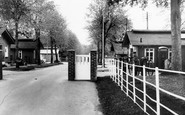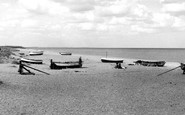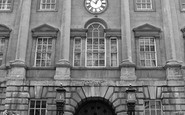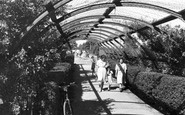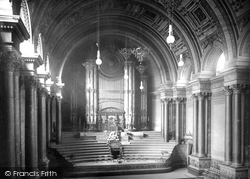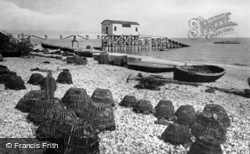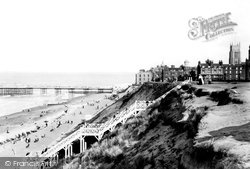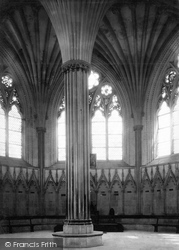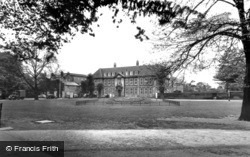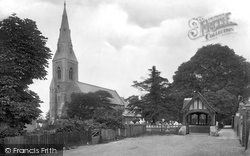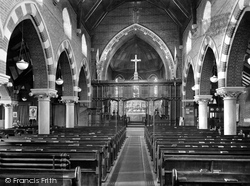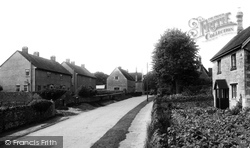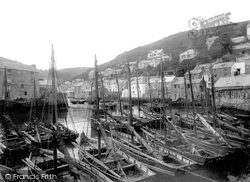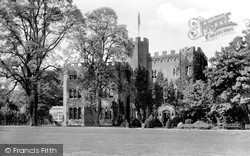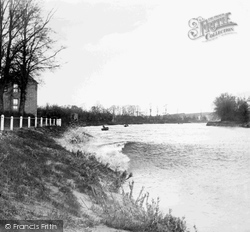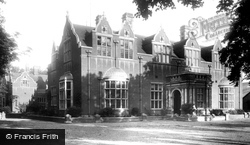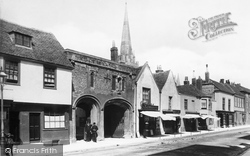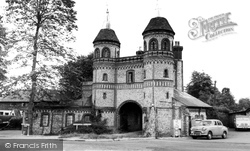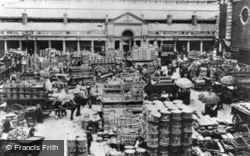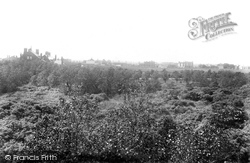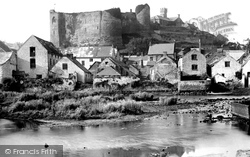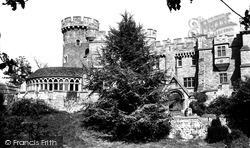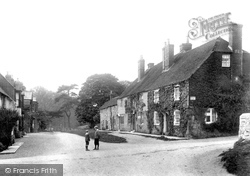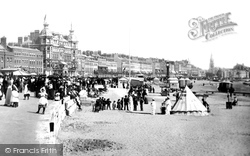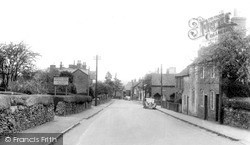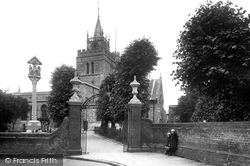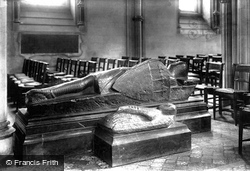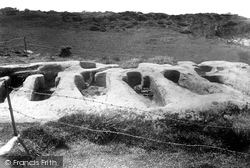Places
25 places found.
Those places high-lighted have photos. All locations may have maps, books and memories.
- East Wall, Republic of Ireland
- Pell Wall, Shropshire
- Wall, Northumberland
- Heddon-on-the-Wall, Northumberland
- Walls, Shetland Islands
- Wall, Cornwall
- Wall, Staffordshire
- East Wall, Shropshire
- Wall End, Kent
- Hobbs Wall, Avon
- Wall Bank, Shropshire
- Wall Nook, Durham
- Knowl Wall, Staffordshire
- Hazelton Walls, Fife
- Wall Mead, Avon
- Mid Walls, Shetland Islands
- Greetland Wall Nook, Yorkshire
- Aston le Walls, Northamptonshire
- Wall Heath, West Midlands
- Wall Hill, Greater Manchester
- Wall End, Cumbria (near Millom)
- Wall under Heywood, Shropshire
- Dale of Walls, Shetland Islands
- Bridge of Walls, Shetland Islands
- Hole-in-the Wall, Hereford & Worcester
Photos
516 photos found. Showing results 1,021 to 516.
Maps
172 maps found.
Books
Sorry, no books were found that related to your search.
Memories
1,989 memories found. Showing results 511 to 520.
Rowes Of Netheravon.
As a little girl I remember visiting Auntie Alice and Uncle Bill Rowe. They lived in Vine Cottage just down from the SSW Army Camp. Dad was stationed there after the Second World War, that's where he met my mother Margaret ...Read more
A memory of Netheravon in 1965 by
Camping On The Benthills
I too, as others, have many fond memories of holidays in Sizewell. During summer school holidays I travelled from Scotland to London to be with my grandparents. They were well connected with Sizewell and would take me ...Read more
A memory of Sizewell in 1953 by
Corn Exchange
Before the railways (railroads) came, there was no particular reason why people in Bristol, England should keep the same time as people in London. At that time there was no practical way of communicating information about time ...Read more
A memory of Bristol by
Pednor Riding Stables
I learned to ride at Pednor stables, run by Hilary with help from her husband. They had a motley but extremely well cared-for string of horses, which grew all the time. My favourite was a 4-yr-old exmoore called Kerry, ...Read more
A memory of Pednor Bottom in 1971 by
I Am Not A Beach Boy
I am not a beach boy, even though we share a name. (I have not worked out how to create paragraphs,so bear with me.) My parents moved to the Beach when I was about 11 years old (around 1953) to Beach Road. We lived in the ...Read more
A memory of Severn Beach in 1953 by
Milnathort A Genteel Place
My sister and I were invited to spend holidays at the home of a very kind lady in Milnathort. Church of Scotland ministers were asking members of their congregations to look after children from 'homes' during the ...Read more
A memory of Milnathort in 1965 by
Detling Village
My brothers and I attended Detling Primary School in the 1970s. Mr. Chidgy was headmaster and lived in the schoolhouse joined onto the main school hall, then later Mr. Cuthbert. We sat on the wooden highly polished floorboards of ...Read more
A memory of Detling in 1970 by
Mrs Jemmison
How we must have given this lady a headache. She lived at the bottom of the lane and we children used to go to the side of her house and play ball. Many times she came out, not to complain, just to ask us to move further up the wall ...Read more
A memory of Harpurhey in 1956
Living In East Butterwick
January 2010 I came back from spending Xmas and New Year in Portsmouth. It was still snowing. I had to stay indoors most of the time because I couldn't cope well with walking in the snow. When I had to go to the ...Read more
A memory of East Butterwick in 2010
Brampton Bierlow ~ Concrete Cottages
I was born in 1936 at Concrete Cottages - Brampton. I would appreciate any photos of these old miners' cottages. My sister Margaret died there at the tender age of 10 years. My father was a miner at Darfield ...Read more
A memory of Wombwell in 1930
Captions
1,668 captions found. Showing results 1,225 to 1,248.
The town hall not only housed the council: there were law courts, facilities for lectures, public meetings and for music festivals.
Lobster pots, small fishing boats and flint cobble walled fishermen's cottages survive the tide of modern housing.
It can be a long dangerous slide down the tiered sea walls to the sands and pier. The smart new flight of steps allowed ladies in long dresses to make a dignified descent.
The carved faces on the walls have survived (some of them are comical), and the bosses in the vault and some pieces of original medieval glass remain.
At the right are the walls to Walpole Park. Next door is St Mary's, one of the village's original 18th-century houses.
The wall on the extreme right of the photograph once marked the boundary of West Cheam Manor.
At the same time the chancel walls were panelled, new altar rails were installed, and a new pulpit was erected.
A local character, Miss Barrow, lived in Ancaster House where she was well known for her vegetable garden. She kept her Rolls-Royce in the barn.
The great gale of 1891 destroyed the bulk of the Polperro fishing fleet, and resulted in the harbour walls being extended to create a narrow entrance that could be closed off with timber baulks should
Much of the grounds and garden walls were restored in 1912, and the walks were opened to the public.
Twice a year, in April and September, people come from all over to watch the Severn Bore, a wave varying in size from nothing more than a ripple to a wall of water several feet high.
This east front faces the high walls surrounding Bedford Prison on the other side of Adelaide Square, which is itself a collection of fine buildings, some of 1801 by Bedford's own John Wing
It began as a Roman walled town, and flourished in the Middle Ages with its fine Norman cathedral.
Dating from about 1860, the gatehouse is a fantastical construction of flintwork walling with a welter of brick enrichment.
The cries of traders echo through the expansive square, planned by Inigo Jones.The scene has been described by a contemporary guidebook: ‘All night long the rumble of heavy wagons seldom ceases, and
The former Primitive Methodist Chapel can be seen left of centre, and the old white-walled Ship Hotel us to the extreme right. The houses on the left are in Scarbrough Avenue.
The watch-tower in the roof of the new prison was built so the guards could observe all activity in the exercise yards.
In the second view we are looking at the same façade as above, but from another angle; we can see details of the walls and windows.
Here the photographer looks down St Thomas Street into Friary Walk, with the corner of the churchyard wall on the right.
The esplanade extends for about a mile, and is lined with elegant houses and defended by a substantial sea-wall.
Local dry stone walling, brick and Swithland slate are all here in abundance, as the road drops down from Maplewell Hall to the village centre.
The gateway seems to dwarf the children by the wall. The War Memorial to the left is in the form of a medieval calvary.
The full-length figure (which bears the arms of FitzOsbert of Drogheda) is probably a replacement procured by the Lord Deputy, Sir Henry Sidney, when the original effigy was broken when the south nave wall
The chapel is one of the oldest in the country; the remains of its walls are 2ft 6ins thick, bonded with immensely strong mortar made by burning sea-shells – this method was used by the Romans.
Places (25)
Photos (516)
Memories (1989)
Books (0)
Maps (172)

